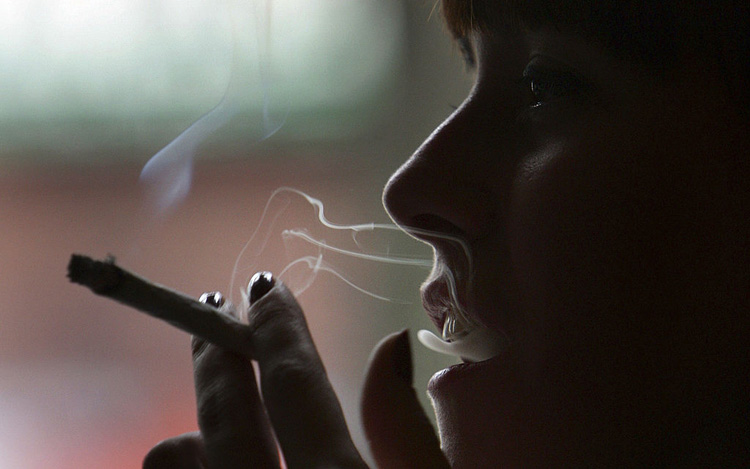Wider use of marijuana carries the danger of reversing years of progress in curbing tobacco smoking, a U.S. drug policy expert warns.

“Marijuana is a gateway to tobacco use,” says Jonathan Caulkins of Pittsburgh, Pa.’s Carnegie Mellon University.
“There’s a very strong association that people who smoke tobacco are more likely to use marijuana and vice versa. People who are dependent on marijuana are much less likely to succeed in quitting tobacco.”
It’s ironic that one concern about legalizing a banned substance is that it might lead to more people using another substance that itself has never been illegal.
READ: Canada will see 900,000 new pot smokers under legalization, poll implies
However, the problem, in this case, is smoking, not marijuana consumption as such. One way to head off the problem is by encouraging people who want to consume pot to use forms other than traditional smoking, he argues:
“If you were king of the world, and you wanted to legalize, you might well say ‘Yes, absolutely – you can get cannabinoids, but you can only get them by vaping – you can’t get them by smoking.'”
WATCH BELOW: As the Liberal government works to make legal marijuana a reality, the Canadian Medical Association is weighing in. The organization says there should be an age limit for smoking pot and offered a wide-range of other recommendations that might not sit well with legalization supporters. Mike Le Couteur explains.

What effect does marijuana legalization have on drinking alcohol?
“The evidence is split right down the middle,” Caulkins says.
In Washington and Oregon (but not Colorado), states where marijuana is legal, a modest increase in use seemed to coincide with a modest decrease in alcohol use.
Colorado alcohol-related lobby groups campaigned against legalizing pot there. But legalization, when it happened, didn’t cause a fall in alcohol sales. (The Guardian reported that marijuana tourism seemed to have boosted alcohol sales in Colorado.)
READ MORE: How will legal pot be sold? Three things that might happen, and one that won’t
In general, studies of the relationship between pot and alcohol consumption tend to contradict each other.
A 2011 paper argued that legalization of medical marijuana, in states where that had happened, led to a 25 per cent drop in the average number of drinks consumed by people in their 20s, and a 5.3 per cent fall in beer sales. Another connected legalization of medical marijuana to an increase in binge drinking.
In Canada, a Forum poll offers some indirect evidence that income may be a factor shifting some people from alcohol to marijuana. People who said they don’t consume pot now, but probably would under legalization, were more likely to be young adults and live in Atlantic Canada. In an Ontario-specific poll, they were more likely to live in Northern Ontario.
“Consumption is concentrated among people who are poorer,” Culkins says.
Marijuana is likely to stay relatively cheap, compared to alcohol, even in a highly regulated system.
Governments can only get away with pricing marijuana so high. Even if they have a monopoly on paper, they are in effect pricing in something of a free market, says Rebecca Jesseman, senior policy adviser at the Canadian Centre on Substance Abuse.
Pot will have to be “priced high enough that price is a deterrent, not a cheap intoxicant that’s going to encourage more or heavier use.”
“But at the same time, we don’t want to price it so high that we’re driving people to the illegal market.”
On the other hand, marijuana can help to reduce the use of opiates, Culkins says:
“There are some suggestive studies that when you have greater availability of marijuana, people use marijuana to treat their pain instead of using opiates. Opiates are bad news – they really do kill you.”
“If people with chronic pain substitute marijuana for opiates, that may well reduce deaths. That goes in a good direction, unlike the tobacco.”
A paper the RAND Institute wrote for the state of Vermont suggested that if opioid prescriptions were replaced to some extent with medical marijuana, it could reduce the number of prescription painkillers being diverted to the black market.




Comments